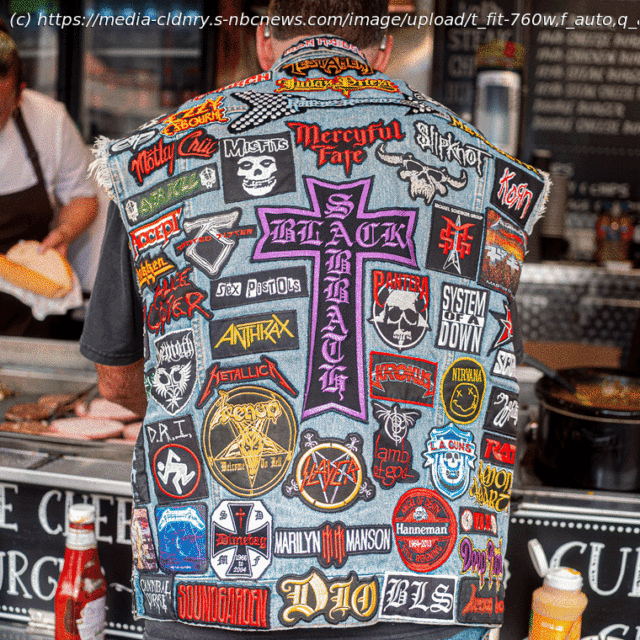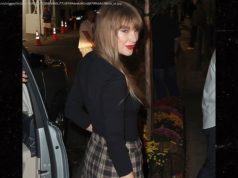With tears in his makeup-shadowed eyes, Osbourne, the ailing and retiring frontman for Black Sabbath, raged against the twilight of the metal gods.
Ozzy Osbourne rises from beneath the stage on a leather throne adorned with a bat and two diamond-eyed skulls. It’s part rock ’n’ roll theater, part medical necessity.
At 76, the “Prince of Darkness” has Parkinson’s disease, his spine is held together with screws and plates, and his ailing voice sometimes struggles for pitch.
But this was an emotional display of bloody-minded defiance.
On Saturday night, in his hometown of Birmingham, Osbourne forced his battered body through the final concert of his band, Black Sabbath, the godfathers of heavy metal formed in 1968. It capped a 10-hour marathon featuring the biggest names in hard rock, from Metallica and Guns N’Roses to supergroups packed with A-listers from Aerosmith, Rage Against the Machine, the Smashing Pumpkins and even Ronnie Wood from the Rolling Stones.
With some 45,000 coming from all over the world to fill Birmingham’s Villa Park soccer stadium — and another 5.8 million watching online — it was a defining moment for an epoch now in its twilight. The superstars of 1960s and ’70s counterculture are bowing out, often replaced by the fragmented niches, tribes and trends enabled by the internet. With tears in his makeup-shadowed eyes, the Sabbath frontman both honored this handover while raging against the dying of its light.
“You’ve got no idea how I feel. Thank you from the bottom of my heart,” Osbourne told the rapt audience in a faltering voice.
The snap reviews were replete with awe.
“I was a bit afraid when I first saw Ozzy in his chair; I didn’t know how he was going to be,” said Markus Kocher, 57, who traveled here from Stuttgart, Germany, where he works in manufacturing. “But it was fantastic. I was very, very emotional. I was born in 1968, so Black Sabbath has been around me my whole life.”
Hints abound that many rockers here are no longer in their 1970s prime. A sign outside the stadium warns “crowd-surfing and moshing are not advised,” and an MC tells the audience to “make sure you’re hydrated — not just with beer!” But there are also plenty in the masses born decades after Sabbath’s heyday, including a notable number of families.
“I cried,” said Heyang Zhou, a 21-year-old student from Huangshan, China, who is studying in Liverpool, England. “Ozzy is so ill but he still made a show for us.”
The entertainment is male-dominated (of the dozens of musicians there is only one woman: Lzzy Hale of Pennsylvania rockers Halestorm) but the crowd is far from it.
“I paid about 400 British pounds (about $550) for the ticket, but I would have paid 1,000 pounds — honestly even more than that,” said Maddison Wilson, 28, from Cleveland, Ohio. “This is a once-in-a-lifetime opportunity. I was brought up by my parents with older music, whether it’s Black Sabbath or Pink Floyd.






